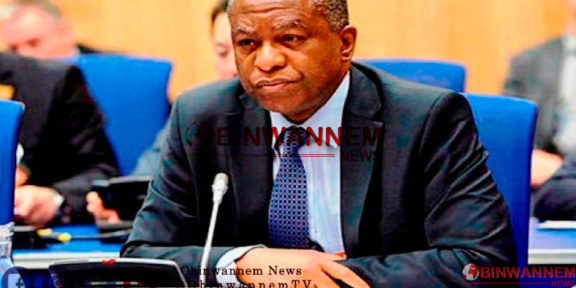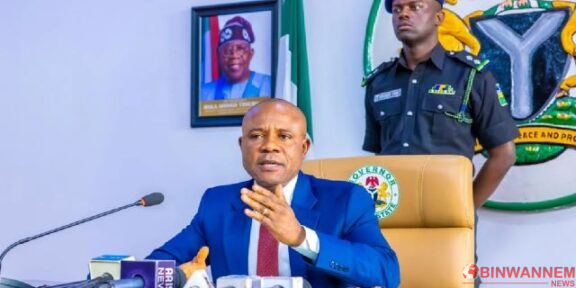In a recent statement that has stirred controversy and debate, the Nigerian Minister of Defence, Mohammed Abubakar, seemingly endorsed the idea that Nigerian communities are free to engage in dialogue with bandits or terrorists. While the sentiment of fostering dialogue and resolving conflicts peacefully is commendable, this approach raises several concerns and questions about the government’s stance on national security.
The defense minister’s statement comes in the context of the abduction of female students from the Federal University Gusau in Zamfara State, Northwest Nigeria. Governor Dauda Lawal of Zamfara State had accused the Federal Government of secretly negotiating with terrorists to secure the release of the abducted schoolgirls. This accusation prompted a response from Abubakar, who denied any government mandate for negotiations and accused the governor of “playing politics with the sensitive matter.”
The defense minister’s position, as articulated in his statement, presents a number of troubling issues:
Ambiguity in Government’s Approach: While Abubakar suggests that communities can engage in dialogue with bandits, he does not clarify the government’s stance on such actions. This ambiguity can create confusion among the public and potentially embolden criminals who may interpret it as a sign of weakness.
Erosion of State Authority: Encouraging communities to negotiate independently with criminal elements raises questions about the state’s ability to maintain law and order. It may send a message that the government is unable to protect its citizens effectively, leading to a potential breakdown of trust in government institutions.
Risk of Vigilantism: Allowing communities to engage directly with bandits may inadvertently lead to vigilantism and further violence. Without proper training and support from security forces, community-led negotiations could escalate conflicts rather than resolve them.
Lack of a Coherent National Strategy: The defense minister’s statement appears to lack alignment with a coherent national strategy for dealing with insurgency and banditry. A more unified approach, involving security forces, local communities, and government agencies, is essential to effectively address these challenges.
Public Perception: The statement raises concerns about the government’s commitment to national security. It is crucial for government officials to communicate a clear and resolute stance against criminal activities, such as banditry and terrorism, to reassure the public.
In conclusion, while advocating for dialogue and peaceful conflict resolution is a noble goal, the defense minister’s statement leaves room for misinterpretation and raises questions about the government’s approach to national security. To effectively combat banditry and terrorism in Nigeria, a comprehensive strategy that ensures the safety of citizens, strengthens law enforcement, and fosters trust in government institutions is imperative. The government must provide clear, consistent, and well-defined policies and actions to address the pressing security challenges facing the nation.

















